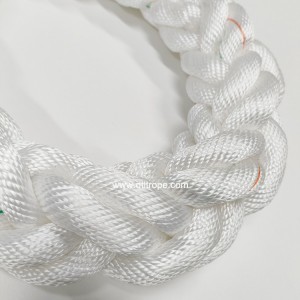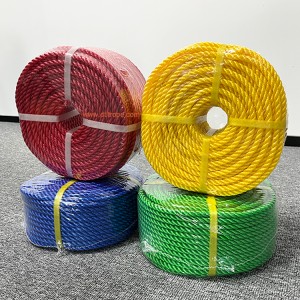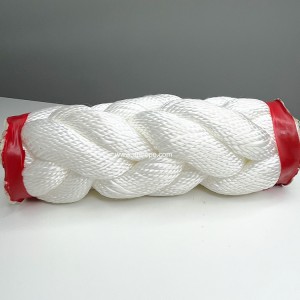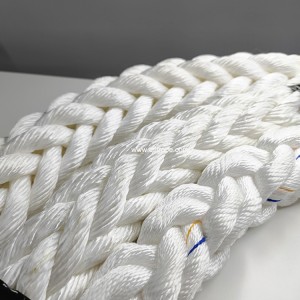* Nylon Rope
Strong in strength, light in weight, soft, with great elasticity, and not easily fatigued after long-term use; Has strong chemical resistance and does not undergo chemical reactions when exposed to oil; The surface of nylon rope will gradually fuzz after friction, but it has little effect on its strength. The rough layer of fuzzing can protect its interior and prolong the service life of the rope; Nylon rope has high moisture absorption, and its weight will increase after entering water; After friction, static electricity will be generated, which is easy to adsorb.

*Vinylon Rope
Wear resistance, low temperature resistance, salt solution and oil resistance; The resistance to ultraviolet rays is the strongest among synthetic fiber ropes, and it will not age or decrease in strength even if exposed to long-term sunlight. When the temperature reaches 230 ℃, melting and combustion will occur simultaneously (for example, during cable twisting, long-term strong friction will cause burnt black phenomenon); Its resilience is poor, and it will experience shortening or elongation deformation when exposed to high temperatures or elongation. Moisture absorption is the highest among polyene fibers and also among synthetic ropes. Once the rope is immersed in water, its weight significantly increases.
*Polyethylene Rope
Low temperature and chemical resistance; Poor water absorption, able to float on the water surface and maintain various properties in water, suitable for water applications; The disadvantage is that it is not resistant to high temperatures; When in contact with ethylene rope, the tactile sensation is similar to that of brown rope.

Post time: Jun-13-2024










